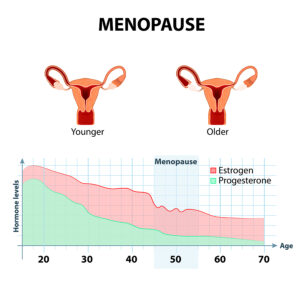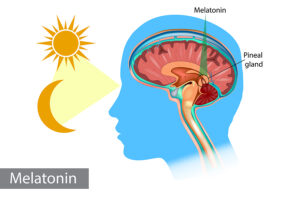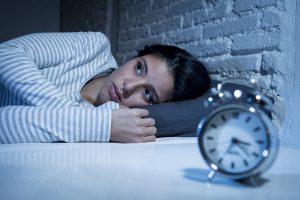Dr. Thierry Hertoghe discussed treatment of hormone deficiencies with bioidentical hormones at the Anti-Aging Conference in Las Vegas, which I attended. He was one of the keynote speakers Dec. 13, 2024. He is a well-known endocrinologist from Brussels/Belgium and has given many lectures at these yearly Anti-Aging Conferences before. The actual title of his presentation was: “General Overview of the Importance of Bio-identical Hormone Replacement Therapies.”
General remarks
- When the body ages, hormone glands are aging as well, and they often don’t produce enough hormones as in younger years.
- In this case the physician can prescribe replacement hormones, but it is important that they are bioidentical hormones (not synthetic).
- The Women’s Health Initiative showed in the past what happens when synthetic hormones are used to treat postmenopausal symptoms: many patients came down with strokes, heart attacks, breast cancer, uterine cancer and blood clots.
- Well before that study European endocrinologists have pointed out that there are no complications when the physician prescribes bioidentical hormones.
- Never treat a hormone deficiency in isolation. Often there are multiple hormone deficiencies present at the same time and the physician needs to address each one on its own.
Thyroid disease
Dr. Hertoghe pointed out that the most common thyroid disease in older age is hypothyroidism. Blood tests show high TSH with this, free T3 and free T4 are low. He warned that high meat consumption (beef, poultry and fish) as your evening dinner leads to prolonged low T3 overnight and in the morning. Dr. Hertoghe’s recommendation was to consume most animal protein at breakfast, a lesser amount at lunch and none at supper. Treatment of hypothyroidism is with a mix of T3 and T4. Each one alone does not stabilize the patient as well as the mixture. The physician orders blood tests every 2 months and adjusts hormone levels based on the results.
Testosterone for men
Young men have ample production of testosterone in their testicles. When men reach the age of 60 or older testosterone blood levels often decline. Testicles of a male produce mainly testosterone, also some dihydrotestosterone and a smaller amount of estradiol. All of these hormones balance each other. Older men can develop erectile dysfunction. It would be a mistake to just treat them with Viagra for this. Their metabolism is missing testosterone, which protects the heart and the brain. They need hormone replacement with testosterone. This is either administered topically or by intramuscular injection every two weeks (or twice per week with a lower amount). If hormone replacement does not solve the erectile dysfunction, the physician can still add Viagra later. The physician orders testosterone blood levels every 3 months and adjusts the testosterone dose up or down.
Estrogen and progesterone for women
Estrogen develops normal breasts; progesterone prevents excessive breast development. Women with huge breasts have progesterone deficiency, they are estrogen dominant. Both hormones are necessary for good coronary artery blood flow. A lack of both hormones causes heart attacks. In menopause hormone replacement with bioidentical hormones is necessary. Dr. Hertoghe discussed this in detail. Depending on what blood levels show a postmenopausal woman may also require a small amount of testosterone replacement. Women who had surgery that removed their ovaries in the past are often testosterone deficient. I discussed this topic previously here.
Adrenal cortex hormones
Two essential hormones are produced in the adrenal glands, namely cortisol and DHEA (=Dehydroepiandrosterone). Cortisol provides energy, is anti-inflammatory, but leads to the breakdown of muscle tissue. DHEA is the natural counterpart to cortisol as it gives you energy and builds up your muscles. It also stimulates axillar hair growth.
Cortisol
The physician can determine the level of cortisol either through blood tests, in 24-hour urine tests or in saliva tests.
Two cortisol conditions are important:
- Adrenal gland insufficiency or Addison’s disease: the adrenal glands cannot produce enough cortisol. This presents with confusion, vomiting and progressive hyperpigmentation of the skin.
- Cushing’s syndrome: these patients usually have fat accumulation in the abdomen and they bruise easily. Some patients have a benign tumor in the adrenal gland that produces too much cortisol. Resection of the tumor cures the condition.
Dr. Hertoghe demonstrated images of various patients with cortisol problems and discussed management of them.
In patients who require cortisol replacement the physician prescribes the bioidentical hydrocortisone. This molecule is identical to what the body produces in the adrenal glands. Synthetic corticosteroids are not properly metabolized and cannot participate in the diurnal hormone rhythm. Unfortunately many conventional physicians still order the more powerful synthetic corticosteroid hormones that have many side effects.
DHEA
This hormone is important for both men and women. It supports health and physical appearance. Blood tests easily detect the storage form of DHEA, namely DHEAS. When deficient in it, women need 15 – 20 mg of DHEA per day in the morning. Men require 25 – 30 mg upon awakening. Unfortunately, a lot of the vitamin merchants are pushing the 50 mg DHEA tablets, which is overdosed. DHEA melts fat in and builds up muscle mass. It also increases blood supply to the heart thus preventing heart attacks.
Melatonin
This hormone improves sleep and opposes premature aging. Older people, particularly after the age of 65 produce much less melatonin than in the past. A blood test determines whether or not you are deficient in melatonin. Melatonin deficient patients should swallow 3 mg capsules of melatonin at night. If necessary, another dose of 3 mg may be swallowed in the middle of the night. Higher doses than 6 mg of daily melatonin suppress cortisol production in the adrenal glands as these two hormones are natural opponents. Dr. Hertoghe mentioned a study of women who regularly consumed alcohol. This was compared to a control group of women non-drinkers. The urinary metabolites of melatonin were 6.4-fold lower in the drinking group. Another important action of melatonin is a significant improvement of blood supply to the heart under the influence of melatonin. Together with other hormones this helps to prevent heart attacks.
Growth hormone and IGF-1
Both of these hormones can be detected in 24-hour urine collection. Most of the human growth hormone is metabolized in the liver into IGF-1(insulin-like growth factor-1). The blood level of IGF-1 reflects accurately whether a person is growth hormone (GH) deficient or not. A low IGF-1 blood level means that this person requires growth hormone injections. Growth hormone deficiency leads to facial swelling, lack of energy, fat accumulation and hair loss. With GH replacement the face becomes firmer and younger looking, body composition improves with well-developed muscles. Hair growth normalizes and the person has abundant energy. GH also protects the heart muscle and coronary arteries.
Conclusion
Dr. Thierry Hertoghe was one of the key note speakers on Dec. 13, 2024 at the Anti-Aging Conference in Las Vegas, which I attended. He is an endocrinologist from Brussels/Belgium. He shared some of the common hormone disbalances that he encountered in his practice. It is important to replace missing hormones only with bioidentical hormones, not with synthetic hormones. This helps to rebalance all of the hormones. In addition, the diurnal hormone rhythm is functional again when the doctor prescribes bioidentical hormones. Synthetic hormones do not properly participate in the diurnal hormone rhythm. Patients who replaced their missing hormones have a normal or better than normal life expectancy. They are also less prone to chronic diseases.











